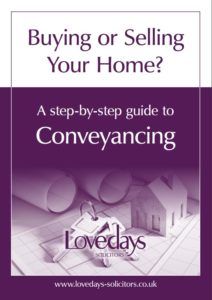- Home
- Personal Services
- Advice for Employees
- Conveyancing
- Dispute Resolution
- Boundary Disputes
- Dealing with Rent Arrears
- Japanese Knotweed Claims
- Landlord and Tenant Disputes
- Landlord Harassment & Illegal Eviction
- Negligence Claims Against Builders & Developers
- New Build Property Disputes
- Noisy Neighbour Disputes
- Personal Debt Collection
- Property Misrepresentations Claims
- Rights of Way Disputes
- Section 21 No Fault Evictions
- TOLOTA Claims
- Tree & Hedge Neighbour Disputes
- Divorce and Separation
- Family Law
- Lasting Power of Attorney
- Licensing
- Probate Law
- Trusts
- Wills
- Business Services
- Reviews
- Make An Enquiry
- Cost and Service Information
- About Us
- Contact Us
Separation Legal Advice
When a married couple split up, they may decide to go through a legal separation instead of a divorce. This could be due to religious beliefs, because the marriage has lasted for less than a year or to give each other space and time to work out what you want for your relationship.
{quote}
Understanding Legal Separation in the UK
A legal separation does not just mean living apart, it means that there is a court ordered arrangement in place that allows a married couple to live separate lives, sometimes temporarily, with their own financial boundaries in place and agreements over child custody and child support. This does not end a marriage or civil partnership in the way that a divorce would, and although the two parties might be living apart, they are still legally married.
The Matrimonial Causes Act 1973 sets out the legal framework that governs legal separation. This is the law that governs both divorce and separation, as well as the powers the court has in determining arrangements relating to children, finances and property.
There can be a number of reasons for choosing a legal separation over a divorce, but the main one is that it gives each spouse the time that they need to reflect on their relationship and the future whilst living independently.
Living through separation for two years or more, can also be one of the grounds for divorce, and having already made arrangements relating to children and finances, it can make the final process a lot less stressful.
A couple who have gone through a legal separation can still divorce or get back together, but they will not be able to remarry until they have gone through the legal process of ending the marriage.
Grounds for Legal Separation
There is no time restriction in place for when you can apply for a legal separation, unlike a divorce which requires you to have been married for at least a year. An application for a legal separation can be submitted at any time and can be done jointly or by a sole applicant. There is also no limit on how long you can be legally separated for.
When making an application for a legal separation you do not need to give a reason for that separation. Until recently, divorce cases have required you to cite grounds such as adultery or unreasonable behaviour, but as a legal separation does not bring the marriage to an end, this is not necessary. Instead, you simply need to identify which orders you require to be put in place, such as financial orders and child custody arrangements.
The Legal Separation Process
A legal separation is a formal process that must go through the court, and so this needs to begin by filing a formal application with a D8S form. If both spouses have already agreed to the separation and there is no risk of domestic abuse, then they can submit a joint application.
If there is a dispute about the separation or a belief that the other partner will not cooperate or respond to notifications from the court, then it is possible to make a sole application.
The application requires the details of the marriage or civil partnership, such as the date and location of the ceremony and each spouse’s contact details, as well as confirmation of what orders are being sought.
When sending in the application, you will also need to provide copies of your marriage or civil partnership certificate and pay the fee of £365. If a sole application is submitted then a copy will be sent to the respondent who will need to acknowledge this and can then choose to contest it, although the grounds to do this are now very limited.
A cooling off period of 20 weeks will then begin, followed by a requirement for the applicant to complete a statement confirming the contents of the application. This will be checked by the Family Court who will then approve the separation documents and fix a date for the pronouncement of the separation.
At Lovedays Solicitors we can guide you through the whole process, ensuring that all applications are correct and that a resolution can be sought as quickly as possible, with as few complications and as little stress as possible. We can help you to put together all of the necessary paperwork for any orders that you require, ensure you fully understand your legal rights and make sure that your application and any subsequent correspondence is dealt with correctly.
{quote}
Drafting a Legal Separation Agreement
When going through a legal separation, it is important to put a separation agreement together. This will outline some important elements, such as what has been agreed in relation to child custody, child and spousal support and property division. This gives all parties some clarity and certainty, ensuring everyone understands what their ongoing obligations are.
A separation agreement is not legally binding; however it can still be a formal legal document when drawn up correctly by experienced legal professionals like those at Lovedays Solicitors.
It is not a court order, but as it is a written agreement it can be challenged in court much like any other written contract, which is why it is so important to make sure that it is correctly drafted. If a separation order has been entered into voluntarily by both parties, with full financial disclosure and has been drafted with the benefit of professional legal advice, then it will be taken very seriously by the courts as long as it is seen to be fair and reasonable.
A separation agreement can also form the basis of a consent order further down the line if you decide to divorce. This means that the terms of the divorce can mirror the separation agreement, and at this point it will then become legally binding.
As much of the hard work has already been done, this can make the divorce process much quicker and smoother.
When a separation agreement has been drafted and both parties are happy with it, you will need to have it signed and witnessed by two different people, with one representing each party. The witnesses must be independent, with proper mental capacity and over the age of 18.
At Lovedays Solicitors we can help you to draft a separation agreement that is fair and legally correct, ensuring that it will be given sensible consideration in court if the situation ever arises. If there is disagreement between you and your partner, we can offer impartial and expert advice to help you reach a resolution. We will make sure that the separation agreement is both framed and written correctly and takes all relevant aspects into account in order to ensure that it is clear, reasonable and appropriate.
Financial Considerations
When you enter into a legal separation, you will need to work out how you will manage your financial arrangements. This can mean deciding what will happen to your bank accounts, debts that have been accrued, living expenses, retirement accounts and tax amongst other things. In order to reach the best conclusion, it is important for both parties to be completely transparent. By offering full financial disclosure, it is much easier to reach a fair and manageable resolution.
You should try to establish what your assets are worth and who legally owns each one, as well as whose name any debts might be in. This can help to build a much clearer picture of the financial situation and how it should be divided.
At Lovedays Solicitors, we can use our expert knowledge to guide you in what you should expect and what you are entitled to, as well as explaining any legal obligations you might have. We can help you to work through the process of dividing bank accounts as well as advising on rental and mortgage agreements. We can also take you through the process of separating your finances properly to ensure that it is done legally and correctly.
{quote}
Addressing Child Custody and Support
If there are children involved in your relationship, then it is important to come to an agreement relating to how they will be cared for. This will involve working out where the children will live and how much time they will spend with each parent.
This should take into account the needs of the children and not just the adults. It is important to remember that both parents will have parental responsibility for the child, but there are no automatic rights to a set level of custody. In addition to this, you will also need to arrange how you will deal with important decisions relating to your children, such as in terms of their education or health care.
You will also need to agree on any financial support for your children. Both parties will be responsible for the cost of looking after your children, whether you live with them or not. Child support payments can be set up to ensure the basic needs of the child, although the amounts of this will depend on the financial position of each parent, who the child will be residing with and how many children are involved.
Property Division in Legal Separation
When you separate, you will need to decide what happens to any property that you own. If you are married, then you will often be entitled to a share of your partner’s assets even if you are not the legal owner. In some cases, one party may want to buy the other out of the property, or it may be necessary to sell the property and divide the assets. You may also want to put an agreement in place that allows one party to remain in the home for the time being, especially if this is the family home where children also live.
At Lovedays Solicitors, we can advise you on what your legal property rights are as part of your separation and can help you come to an agreement with your spouse that is both fair and reasonable to both. We can also help you with any paperwork required to divide, sell or re-assign assets so that is all done correctly in the eyes of the law.
Conclusion
A legal separation can be a viable option for couples who do not want a divorce, or need the time to decide if they do. It ensures that both parties receive what they might be entitled to and that all children are taken care of no matter how long your separation lasts.
{quote}
Frequently Asked Questions
Whilst you can apply for a separation without legal advice, this is often not the best option. Professional legal advice can ensure that the process is correct and go ahead without delay. It also ensures that any separation agreements are fair and reasonable and will be given due consideration in court if necessary.
You may be entitled to a division of assets, child custody or child support, but this will all depend on your individual circumstances and so you should seek professional legal advice.
If you wish to separate, you can apply for a legal separation without the consent of your partner. Your financial and child custody rights will depend on your individual situation.
You can ask for spousal maintenance from your partner when you separate, particularly if you do not have an income of your own, but you are not automatically entitled to this.
Get Support Today
At Lovedays Solicitors our friendly team of experts can advise you on all aspects of your separation to ensure that any agreements are fair, correct and legal and everything will be treated with sensitivity and discretion.

Free Guide
If you don’t know your leasehold from your freehold, then get our Free Conveyancing Guide. It contains details about the steps you will need to take with any property transactions. The Guide giving you detailed guidance on what your lawyer will be doing for you and what to look out for.


Lovedays Solicitors, Brooke-Taylors Solicitors, Potter and Co Solicitors and Andrew Macbeth Cash and Co Solicitors are the trading names of Derbyshire Legal Services Limited which is a company registered in England and Wales under company number 08838592. Registered office Sherwood House, 1 Snitterton Road, Matlock, Derbyshire, DE4 3LZ.
Authorised and Regulated by the Solicitors Regulation Authority under SRA ID number 637916.
-
01629 56660
-
This email address is being protected from spambots. You need JavaScript enabled to view it. -
Sherwood House
1 Snitterton Road
Matlock
Derbyshire
DE4 3LZ
© Copyright 2019 Derbyshire Legal Services Limited | Website by WebWorks